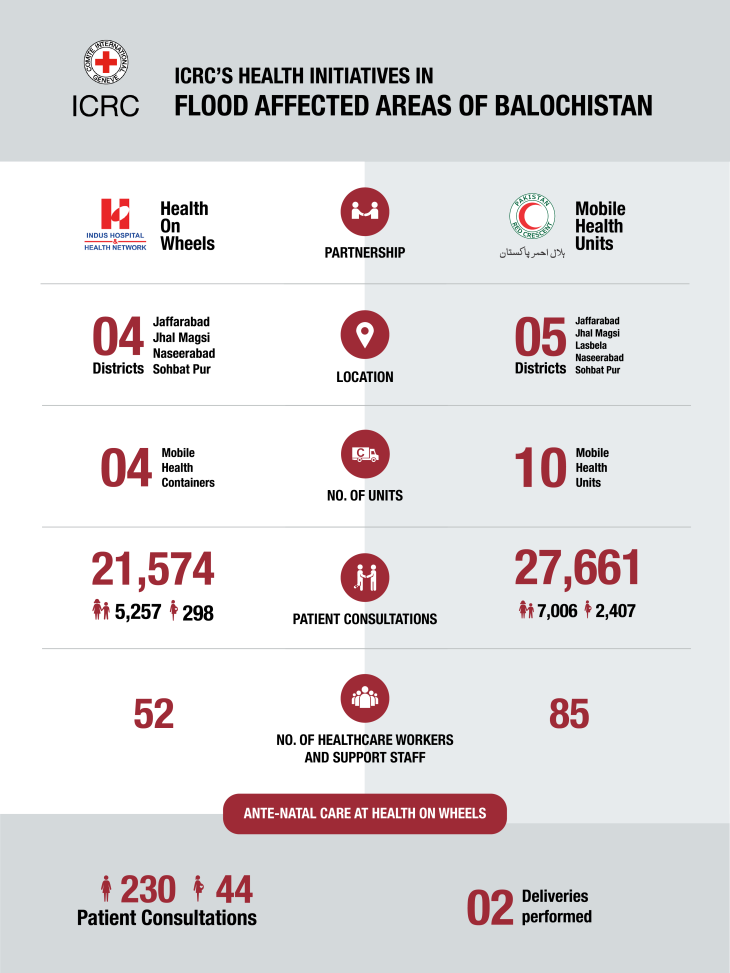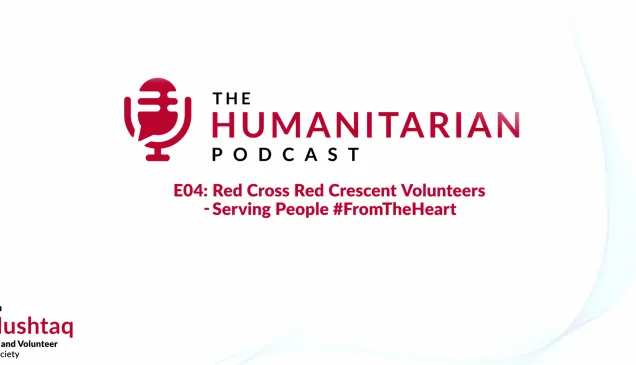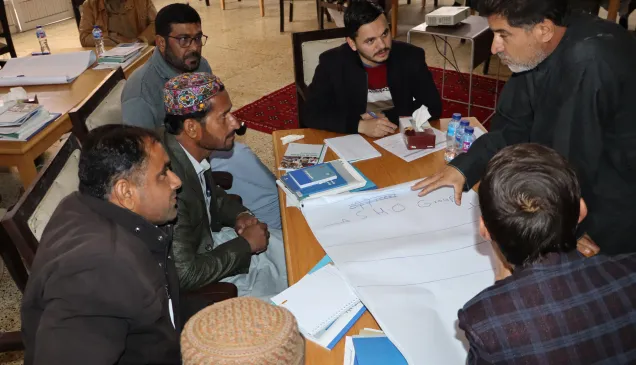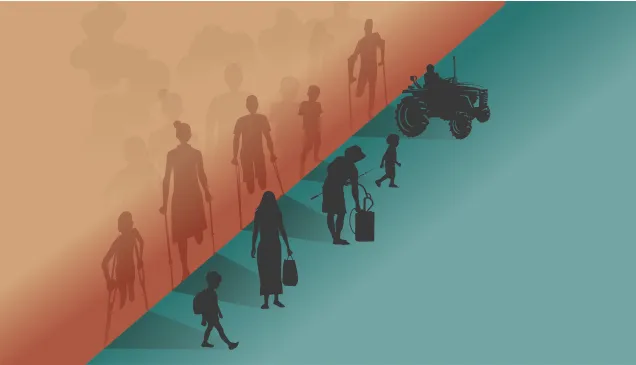Pakistan: ICRC provides emergency health care in flood-affected areas of Balochistan
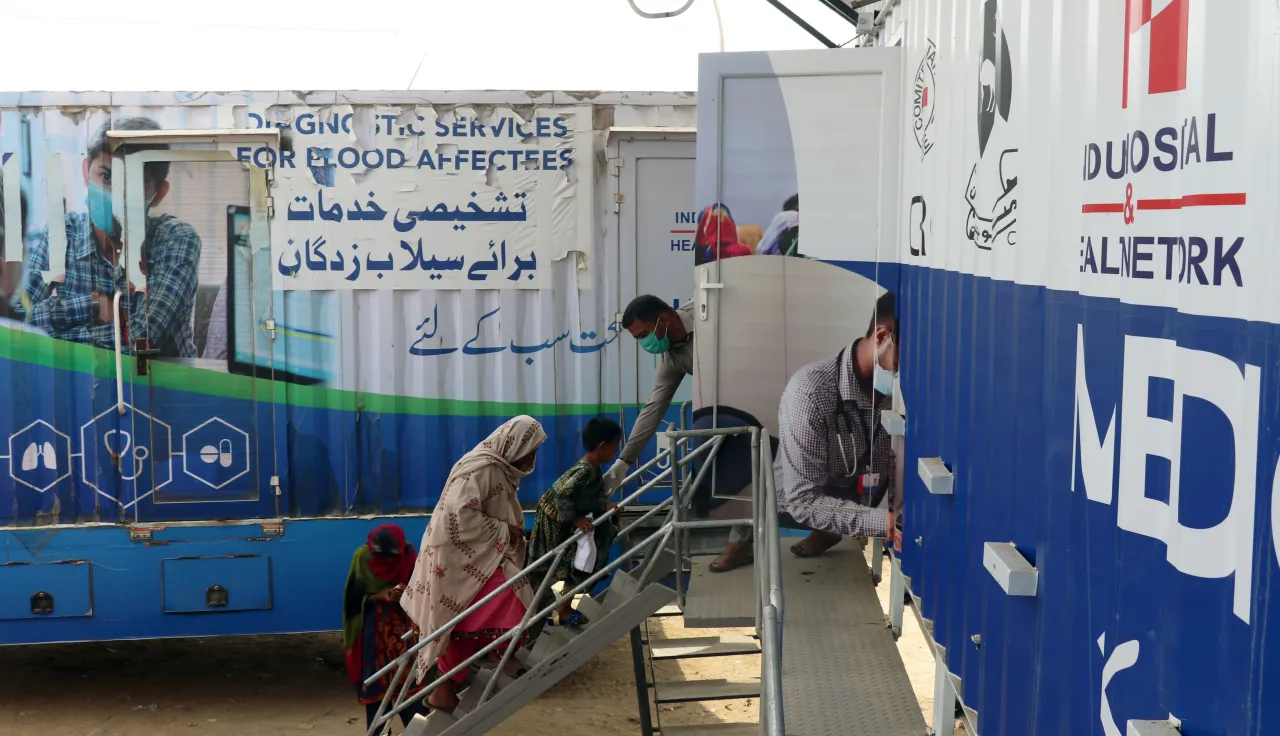
More than 33 million people across Pakistan were affected by catastrophic floods caused by unprecedented monsoon rains in 2022. Post-deluge, stagnant water, damage to homes and roads and disrupted livelihoods led to a public health crisis in remote areas of the country where access to health care is already a challenge.
To address the basic health needs of the affected communities, the International Committee of the Red Cross (ICRC) partnered with the Indus Hospital and Health Network (IHHN) and the Pakistan Red Crescent Society (PRCS) to set up two emergency health-care initiatives in the province of Balochistan, serving an estimated 374,000 individuals between November and December 2022.
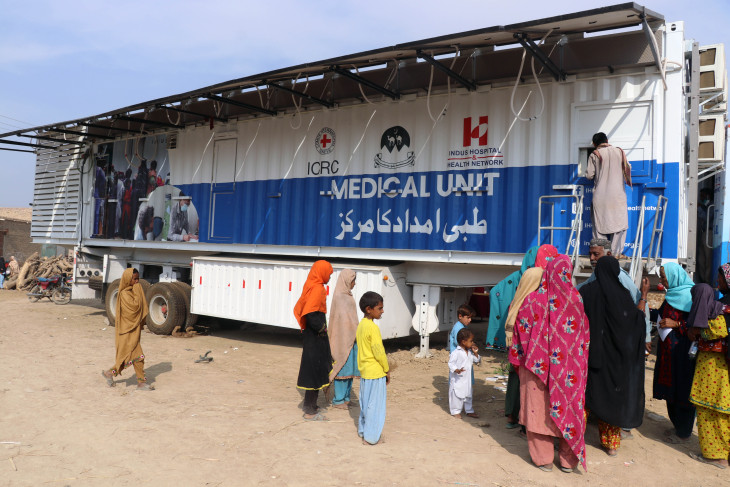
The ICRC-IHHN Health on Wheels initiative provided antenatal care, in addition to general health care and laboratory services, to affected communities in four districts of Balochistan. A total of 52 health-care workers and support staff provided services through four well-equipped container-based mobile hospitals deployed in various towns and villages in Jaffarabad, Jhal Magsi, Naseerabad and Sohbatpur.
"On one hand the health facilities in this area were completely destroyed. On the other, there was an increase in the number of cases of malaria, scabies and acute respiratory infections. The mobile health containers were also equipped with malaria screening units for testing and providing medicines to patients," says Syed Mubashar Shah, focal person of IHHN for the Health on Wheels initiative.
Within two months, more than 21,000 people were provided with curative consultations and care. A total of 230 pregnant women visited the antenatal care clinic attached to each mobile health unit and two women gave birth in a clean environment. More than 4,000 diagnostic tests were carried out, including blood tests, X-rays, ultrasounds, pregnancy tests and malarial parasite screenings, and over 60 referrals were made to nearby hospitals equipped to handle serious or chronic medical conditions.
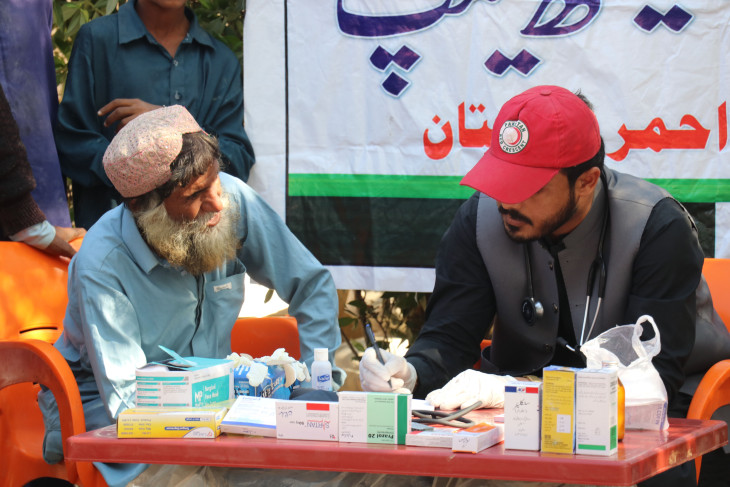
Additionally, ten ICRC-PRCS mobile health units run by 85 staff and volunteers were deployed in the five worst-affected districts of Balochistan. Over 27,000 people across Jaffarabad, Jhal Magsi, Lasbela, Naseerabad and Sohbatpur were provided with consultations and medicines for malaria, respiratory tract infections, malnutrition and skin infections, while almost 900 critically ill patients were referred to designated hospitals close by.
"We saw more than 100 patients every day, the majority of whom were women and children. We also visited local communities one day before a mobile health camp was scheduled to assess their needs so that we could inform doctors beforehand about prevailing illnesses in the area and help them prepare accordingly," shares Abdul Hameed, a PRCS volunteer from Jaffarabad district in Balochistan who works as a community mobilizer.
In addition to addressing the emergency health-care needs of the most vulnerable, the ICRC's health care programme in Pakistan helps in the capacity-building of doctors, nurses and first responders through specialized training workshops. With a focus on the continuum of care, the ICRC also supports structural and systematic involvement, starting from the site of injury to emergency and surgical treatment at hospitals and physical rehabilitation.
